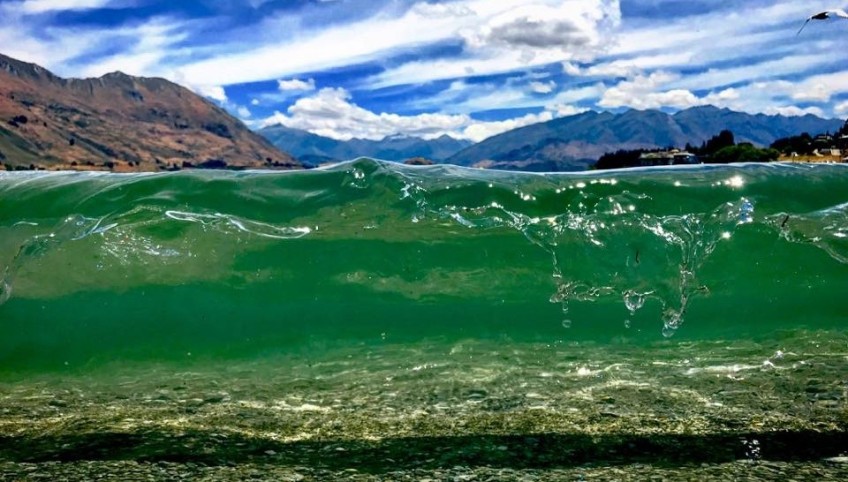Farmers demand transparency from ORC on cost of new water rules

Federated Farmers is calling for urgent transparency from the Otago Regional Council about the potential impacts and costs of proposed new freshwater rules.
The organisation's Otago president Luke Kane has issued a statement to media this morning off the back of a letter to regional councillors, district mayors and government ministers demanding that a latest draft of the regional council's Land and Water Plan be made public.
"The council need to be honest about what these rules might mean for our community and how much it could cost local ratepayers," Mr Kane says in the media statement.
"Since the release of draft regulations there have been significant changes made, but because of the secretive nature of the consultation process the community is completely in the dark.
"This is serious stuff and there needs to be some urgency."
The rules are scheduled to come into force in October and will have immediate legal effect.
The crux of the issue for Federated Farmers is how the rules will give effect to Te Mana o te Wai, a policy framework progressively introduced in the last decade that prioritises the health and wellbeing of waterways above all other uses of water, and the financial implications of doing so.
"Confidential information provided to Federated Farmers suggests the costs will be more than $110 million for just two small Otago towns - equating to more than $50,000 per ratepayer," Mr Kane says.
"If similar costs can be expected across the rest of Otago we’re talking about a multi-billion-dollar spend for the region that will have huge financial implications for residents.
"The regional council needs to urgently confirm whether these cost projections are accurate. If they’re not, they need to front up with the real figures fast."
Mr Kane says farmers "are incredibly concerned" about the possible consequences of implementation of Te Mana o te Wai in Otago.
"We understand that council engagement has led to a view that that no treated wastewater that has passed through a human body can be discharged back into local waterways.
"This would mean that wastewater, despite being treated to an incredibly high standard, would need to be discharged to land at significant cost to ratepayers.
"There are also significant concerns for irrigated farmers that water that has been drawn from one waterway will not be able to be discharged into another.
"This is because of beliefs that each waterbody has a distinct mauri, or spirit, and mixing mauri would reduce the mana of the water.
"While we are respectful of our local iwi and Māori cultural beliefs, these kinds of interpretations will have huge costs and consequences for the region."
It is Mr Kane's view neither of these requirements, nor their associated costs, which he claims could range into the billions, have anything to do with improving the scientific health of local waterways.
"They’re all about improving the cultural and spiritual needs of the waterways, but given the huge implications I think we need to have a more transparent conversation."
Meanwhile, the coalition government is reassessing how Te Mana o te Wai is applied.
While there are many unknowns moving forward, for now councils continue to engage with communities and tangata whenua to determine how the concept should be applied locally.
But Mr Kane's view is that engagement in Otago has been too one-sided - going as far to say the discussion between the regional council and members of the organisation he represents has been "woefully insufficient".
"While they’ve quite rightly engaged with local iwi, the wider local community have not had a sufficient opportunity to feed into the process."
He says Federated Farmers is also concerned it remains in the dark as to what action will be required to meet what it sees as "onerous" national bottom lines for freshwater management - aspects of which are also on the coalition government's chopping block.
"We have asked the council to share the naturally occurring levels of sediment in Otago so that farmers and foresters can manage their contributions to sediment in waterways.
"In many cases across New Zealand, sediment bottom lines are below those achievable even if a catchment was in its natural state.
"Disappointingly, we have not had any response."
Federated Farmers is urging the Otago Regional Council to apply the brakes, while the coalition government reviews its national direction for freshwater and given regional councils have been offered an extended deadline to the end of 2027 to notify new plans.
"This means that there should be no pressure to rush this plan through in October," Mr Kane says.
"The Otago Regional Council needs to slow down, be transparent with our community, and carry out further consultation on the true costs and implications of these regulations.
"This would also allow more time for the council to understand and respond to changing central government direction for freshwater management".
Read more: Discussion with communities on land and water plan flow well
Dunstan councillors disagree on future for controversial land and water plan
Mammoth ORC policy shake up will impact urbanites, not just farmers

























